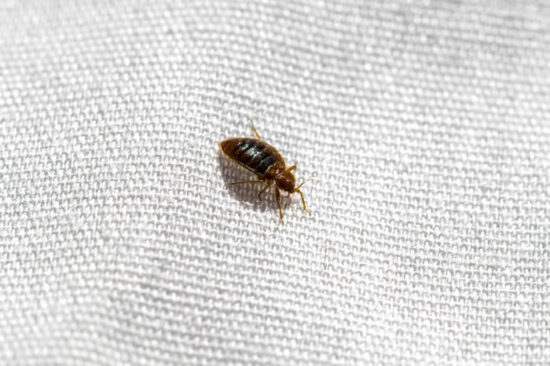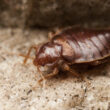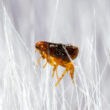Researching what scents keep bed bugs away can be a bit frustrating. There are so many potential smells out there with varying degrees of effectiveness that it’s hard to know where to start.
Fortunately, we’ve done the hard work for you and put together this list of scents and smells that bed bugs hate. You probably have some of them in your house already!
Table of contents
1. Peppermint
Peppermint oil is thought to be a powerful bed bug repellent, and it can make your home smell great. The high level of menthol in peppermint oil is the main reason why this scent keeps bed bugs away.
It’s important to not use this essential oil at full strength as this can often cause skin irritation. Instead, it should be used as a spray. Put 20 drops into a spray bottle that contains about a cup of distilled water. In order to use this as a scent to repel bed bugs, you’ll need to spray it wherever you’ve seen these insects. This can include mattresses, baseboards, closets and other areas.
Peppermint oil even has the potential to kill some bed bugs on contact, but it is by no means a long-term solution. Remember to be careful when using peppermint oil around kids and pets.
2. Cinnamon
While the smell of cinnamon may give you dreams of holiday baking or your grandmother’s kitchen, this is a scent that bed bugs definitely hate. Cinnamon in any form, whether it’s cinnamon powder, cinnamon sticks or essential oil, will work to deter most bed bugs.
We would like to mention briefly that using cinnamon as a weapon in your war against bed bugs is really just a band aid. Using scents and essential oils works only temporarily and won’t actually get rid of the problem. The only way to solve your bed bug issue permanently is to implement more aggressive methods.
Many people decide to try a natural remedy, such as cinnamon, because it is perfectly safe to use around children and pets. There are a few ways to use this method, and all of them are pretty much equally effective.
The most common way to use cinnamon is to sprinkle cinnamon powder wherever you have noticed bed bug activity in order to repel them. This can include under the mattress, in closets and drawers and under the bed.
If you feel that using cinnamon powder is going to create too much of a mess, then you can also try using cinnamon sticks. Place them in the same areas where you would place cinnamon powder. Remember that cinnamon sticks are only effective as long as the scent is strong. You will need to replace them as soon as the smell begins to deteriorate.
The last way to use cinnamon is to make a solution using cinnamon essential oil. Place one part cinnamon oil to ten parts distilled water into a spray bottle. Spray where you find bed bugs. This method may actually kill the bugs on contact, but it won’t kill them long-term. However, it is a good scent to help keep bed bugs away. We recommend spraying it on mattresses, pillows or any other infested area.
3. Tea Tree Oil
Using tea tree oil is a popular method with many people. Tea tree oil works pretty well, but it does have a few negative points that we feel are important to know before using this method.
First of all, tea tree oil is not always the safest to use around kids or pets. It has antibiotic properties, and that’s good for spraying bed bug infested areas, but it’s not great for your family or pets if they come in contact with the oil or spray.
Secondly, many people don’t tolerate the scent of tea tree oil very well. Once you spray it, the smell stays for quite a while. This can be an issue, especially if you sprayed it on or around your bed.
Last of all, tea tree oil can cause an allergic reaction in some people. If you choose to try this method, please make sure that you are not allergic to it.
On the plus side, tea tree oil is a fairly effective scent to keep bed bugs away. Not only do bed bugs hate the smell of tea tree oil, but the oil can actually affect their exoskeleton. This will eventually cause death. Just remember, that like cinnamon, tea tree oil is not a permanent cure.
To use tea tree oil, place about 20 drops of the oil into a spray bottle and dilute with water. Using undiluted tea tree oil will kill the bed bugs directly, but it can be harmful to humans. Spray the solution in places where you see bed bugs to try and repel them with this scent. You can also use it in areas where an infestation is suspected.
4. Lavender Oil
Lavender is a popular smell that bed bugs hate that is found in many soaps, candles, body lotions and cleaning products. It’s used in aromatherapy for stress relief and as a sleeping aid, but it is also used as a scent that keeps bed bugs away.
Before using lavender essential oil, make sure that you are not allergic to it. Many people can’t tolerate lavender, so this is not going to be a good option for you if you have a lavender sensitivity. Also, be careful around children and pets when using lavender essential oil. It can be toxic, especially in an undiluted form.
To use lavender essential oil as a way to repel bed bugs, many people choose to place it in a diffuser. The theory behind this method is that the diffuser will send the scent of lavender through the air to all the places where bed bugs are hiding. You can even use multiple diffusers.
While the diffuser method may make your living space smell great, it’s only moderately effective. What seems to work a bit better is a lavender spray made with essential oil. We suggest using about 20 to 30 drops of the essential oil per ounce of water that you use. Spray the solution in closets, drawers and on all parts of the bed.
5. Neem Oil
Neem oil is something that you may not be familiar with. It’s made from the seeds of the neem tree, and it is a safe-to-use natural pesticide. In fact, it is approved by the Environmental Protection Agency for use as a pesticide inside your house.
It’s often used in ayurvedic medicine, and it’s a pretty potent antibacterial substance. Bed bugs hate the scent and rather unsavory taste of neem oil, so it’s a pretty good way to keep them away.
Neem oil can kill both bed bugs and their eggs, but you won’t be able to count on it for a long-term solution to a serious infestation. It’s nice to use as a way to buy a little time since bed bugs hate the scent.
Want to try neem oil? Mix about a teaspoon of 100 percent cold pressed neem oil with about a quarter of a teaspoon of liquid soap. Castile soap is the best. Don’t skip adding the soap to your solution. Neem oil will float on the water without using an emulsifier like liquid soap. Add about a quart of warm water, and you’re ready to use your spray. Treat the areas where bed bugs can be found.
6. Lemon Juice
Lemon is a wonderful scent, especially for cleaning products. It has such a clean, refreshing smell, and it can often bring to mind memories of lemonade and summer afternoons.
Lemon is a smell that bed bugs hate (the same thing goes for any other kind of citrus), so using lemon juice can be a good scent-based method to repel bed bugs. Lemon juice will not kill bed bugs, and it won’t solve your infestation. For complete eradication, you’ll need to be a bit more proactive. However, it can act as a deterrent until you’re able to dedicate more resources to the problem.
The thing to remember when using lemon juice is to only use fresh lemon juice. Don’t use the “juice” from the plastic lemon that you can find in the produce section. That won’t work. Just like with the remedies mentioned above, it’s best to create a solution to spray in bed bug-infested areas.
While you can use lemon juice and water as your solution, it’s often more effective if you add a bit of rubbing alcohol to the solution. We will talk about rubbing alcohol later, but for now let’s just say that bed bugs really hate it! The citric acid in lemons can be deadly to bed bugs, but adding the alcohol increases the toxicity.
7. Rubbing Alcohol
Rubbing alcohol can be used as a powerful deterrent that bed bugs hate, but it should be used with a certain amount of caution.
First and foremost, rubbing alcohol is highly flammable, so you don’t want to go crazy spraying everything in sight. This can be an especially dangerous problem if you are spraying your bed.
Another point to consider before trying the rubbing alcohol method is that in order to kill the bed bugs, the alcohol has to be sprayed on them directly. This is not a very practical way to deal with the issue.
Lastly, rubbing alcohol is not completely effective. You might kill some of the bugs, but the majority of the population will be left to keep reproducing.
The good thing about rubbing alcohol is that it’s cheap and it kills both the bed bugs and their eggs. It also has a smell that bed bugs don’t like. Simply spray it in bed bug prone areas. Despite the ease and convenience of using this method, you shouldn’t rely on it as your only form of bed bug control if you have a serious infestation.
8. Pepper Powder
If you look online for scents that repel bed bugs, chances are that you will find pepper powder amongst the remedy options. The pepper powder that is commonly mentioned is cayenne pepper and not black pepper. While this method does work to some extent, there are a few downsides you need to be aware of.
Since you would be sprinkling this powder in and around your bed, breathing in the pepper powder or getting it in your eyes is something you definitely want to avoid. Also, you would not want your children or pets getting into it.
Homeowners like using pepper powder because bed bugs hate the scent and it can even kill their eggs. But it’s worth pointing out that there are other eco-friendly options that do the same thing but are safer to use.
9. Diatomaceous Earth
What do the remains of tiny, ancient aquatic creatures have to do with bed bug control? Diatomaceous earth, made from the fossilized bodies of tiny creatures called diatoms, is often used as a bed bug repellent.
The theory behind using diatomaceous earth is that the fossils have very fine, sharp edges that make cuts in the exoskeleton of the bed bugs. Eventually they will die from dehydration. That’s the idea anyway, and it works sometimes and sometimes not. Be aware that diatomaceous earth only kills adults, and the bed bugs need to be in direct contact with it.
Some pest control experts say that it has a subtle scent that keeps bed bugs away, but most of the value comes from direct application. Treat its potential smell as more of a bonus (don’t smell it yourself though).
Using diatomaceous earth is as effective as your placement. If you don’t sprinkle it in the right area then it won’t work, but if you place it where bed bugs are passing through then you’ll be quite happy with the results.
Quick Tip: If you decide to use diatomaceous earth, simply spread it in infested areas. Cleaning it up can be a little bit challenging since it can clog vacuum cleaners, so sweep up as much as you can first.
10. Spearmint Oil
Spearmint oil is similar to peppermint oil in that it contains menthol, and it has a smell that keeps bed bugs away. The difference between the two is basically the amount of menthol they contain. Spearmint oil has about one percent menthol while peppermint has around 40 percent.
Using this scent to repel bed bugs is simple, just apply it the same way you would for peppermint oil. Like with peppermint oil, using spearmint oil is not a true answer to a bed bug issue. But bed bugs hate the smell, so it definitely won’t hurt!
11. Blood Orange Oil
Out of many of the many scents that keep bed bugs away, blood orange oil seems to be one of the most effective. However, keep in mind that bed bugs have to be sprayed directly in order for it to repel them. This can be a tedious and frustrating task that will need to be constantly repeated.
If you only want to repel the bed bugs with this smell, then you can create a solution of blood orange essential oil and distilled water. Mist every spot that you think may be harboring bed bugs.
Conclusion
As you can see, there are scents that keep bed bugs away. But you need to know how to use them correctly.
We recommend picking one or two of your favorite smells that bed bugs hate from the list and starting there. You’ll be shocked at the difference they can make!


